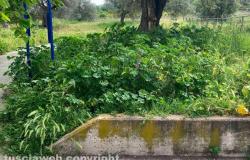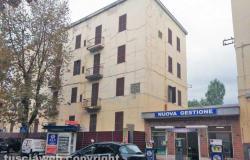Veneto, which holds national leadership in the production of corn and soya and is second in the cultivation of soft wheat, is wondering about the future of the cereals sector, after the collapse in prices due to the exceptional increase in imports from third countries, in consequence of the geopolitical uncertainties linked to the conflict in Ukraine.
The opportunity to talk about it is given by the conference “Markets and supply chains of cereals and soya”, which will take place on Monday 29 April at 10am at the Hotel Crowne Plaza in Padua, organized by Confagricoltura Padova in collaboration with Confagricoltura Veneto.
We will talk about the changes to the CAP on the obligation of rotations and non-productive land, expectations and prospects on the market and supply chain contracts. The introduction will be by Michele Barbetta, president of Confagricoltura Padova. Then Carlotta De Pasquale, market analyst of Aretè, will outline an overview of the markets of the main agricultural commodities. Antonio Canzian, of Cereal Docks, will follow on expectations and prospects on the market and on the prices of cereals and soya. Then Enrico Zavaglia, also from Cereal Docks, and Gianfranco Pizzolato, president of Aires, will delve into the topic of “Supply chain contracts: real tools for growth?”. Finally, Vincenzo Lenucci and Roberta Guidi, from Confagricoltura, will explain what changes have been made to the CAP regarding the obligation of rotations and non-productive land. Conclusions entrusted to Lodovico Giustiniani, president of Confagricoltura Veneto.
“The conference was created to give an answer to the farmers, who in the extraordinary regional assembly two months ago in Padua brought to light problems and suffering – underlines Michele Barbetta, president of Confagricoltura Padova -. Thanks to the elimination of duties, arrivals of Ukrainian soft wheat in Italy doubled in 2023 compared to 2022 and corn imports tripled. The significant exports of cereals to the EU have contributed to the lowering of the prices paid to farmers, creating distortions within the community market. The extremely penalizing prices, in the face of production costs that remain high, put the balance sheets of agricultural companies at risk and we do not know how long this situation will last. The EU has established an emergency brake, with the reinstatement of duties, which will be triggered if import flows from Ukraine exceed a certain threshold, but the list of sensitive products does not include wheat. For Padua, which is the first Venetian province for the cultivation of soft wheat, the situation is penalizing and future scenarios are unpredictable”.
Cereals in the Veneto
According to 2023 data from Veneto Agricoltura, the area cultivated with soft wheat in the region is estimated to have increased significantly to approximately 118,400 hectares (+23.3%). Padua has become the first province in terms of invested surface area with approximately 27,400 hectares, with an increase in investments of +32.6%, followed by Rovigo (26,500 hectares) and Venice (25,000 hectares). As regards durum wheat, the surface area in Veneto has risen to approximately 21,300 hectares (+10%): Rovigo confirms itself as the first province, with over 65% of the cultivated areas at a regional level, equal to approximately 14,000 hectares, followed by Verona (2,900 hectares) and Padua (approximately 2,800 hectares).
Veneto is also the leading producer of corn in Italy, with approximately 163,100 hectares of grain and waxy corn intended for fodder. The province of Venice is in the lead with 24,800 hectares, followed by Padua (23,700 hectares), Rovigo (22,700 hectares) and Verona (21,900). The region also holds the national record in soybeans with 130,500 hectares. Padua is the leading province with 30,750 hectares, followed by Venice (30,450 hectares) and Rovigo (30,200 hectares).





